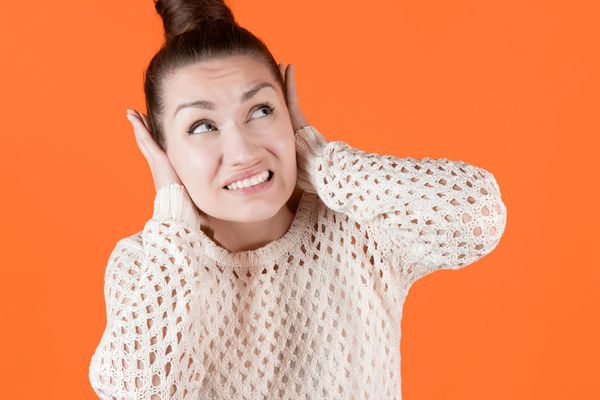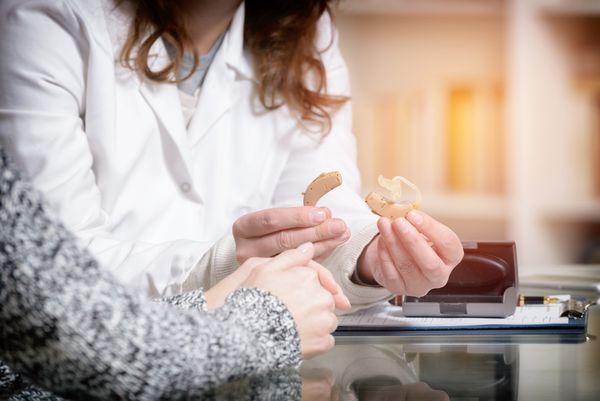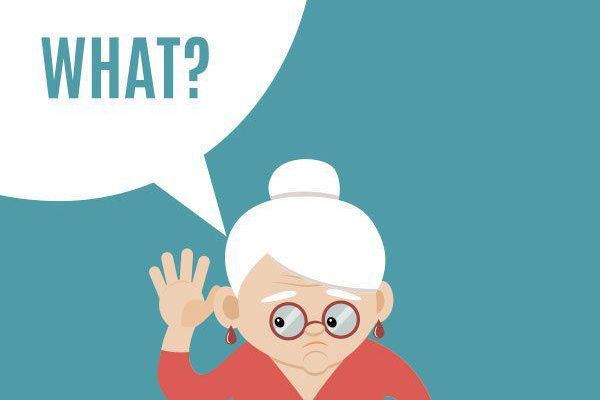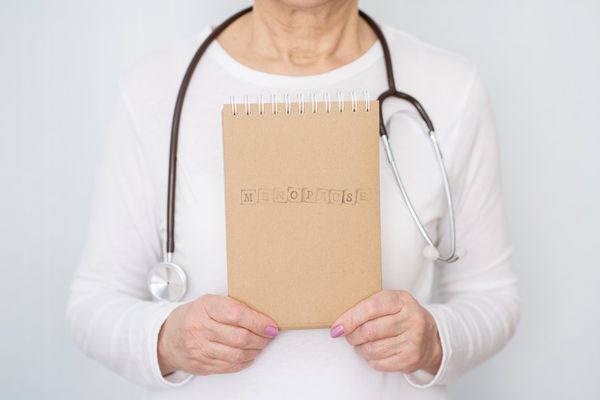Pop quiz: What, besides sex and sleep, change with age?
"It's not just sex and sleep that change with age," wrote Frank Bruni in a recent New York Times article. "It's supper."
If you're over 50 there's no doubt you understand perfectly well what he's referring to here.
Never mind the type of food you prefer. Forget about the popularity of the restaurant. Or its raving reviews. And how important, really, is the restaurant's lighting, mood or ambience?
If it's too noisy, all bets are off.
Because there's no greater appetite-killer than trying to enjoy a meal and a conversation in a restaurant where you can't hear.
You likely experience it yourself: The conversations you strain to hear, that contain copious amounts of "what?" or "pardon me?" along with leaning in, (inauthentic) head nodding or blank stares. The ones that are filled with missed, misinterpreted or obliterated words amidst booming background noise.
These are all the hallmarks of hearing loss.
Currently, about 48 million Americans are dealing with age-related hearing loss. And with the growth of the aging population, that number is bound to rise. Hearing loss usually comes on gradually as you get older, most commonly due to changes in your inner ear and auditory nerve, exposure to loud noises or genetics.
"I'm in good company," wrote Rich, "by which I mean that most people who are about my age or older don't have the same relationships with restaurants that they did decades ago."
I don't know about you, but I've traded in bling, shimmer and the next best thing (add to that long waits) for a peaceful, quiet place where I can actually hear myself think and enjoy clear, sustainable conversation.
Never mind the crispy fries; I want crispy diction.
Good acoustics are the new good food for anyone over age 50.
Back to hearing loss … it's not a good thing. Not just because you miss out on valuable conversations, but because it's dangerous to your health.
Numerous studies have found hearing loss not only increases your risk for dementia and depression, but also for falls and cardiovascular disease. And that all adds up to a large burden on personal, financial and societal costs.
But unfortunately, a very small number—under 20 percent—of people who could benefit from hearing aids actually use them, says a study in the International Journal of Audiology. The reasons are many: cost, social stigma, appearance, health care professionals' attitudes, ear problems and more.
The high cost of the devices, which varies but can top $3,000 per piece, is not covered by insurance, and using them takes some time to get accustomed to.
Hearing aids have existed for a very long time. Fortunately, they've come a very long way since the first iteration, the "ear trumpet." Today they're much smaller and fine-tuned and can be hidden behind the ear so no one—unless they're looking really closely—can even detect them.
Until my recent conversation with Patrick Freuler, the CEO and founder of Audicus, a New York City startup that wants to make hearing aids accessible for everyone, I didn't realize how available hearing aids actually are and that you need not spend thousands of dollars to purchase them through a doctor's office.
Much cheaper hearing aids are available, but not exactly optimal. "You can walk into a Best Buy or order them online through Amazon, but because of labeling requirements, they cannot be called 'hearing aids'; instead, they're known as 'sound amplifiers.'" explained Freuler.
Yet, because there's no hearing test that goes along with it, you're buying a one-size-fits-all product that can't be customized. "You could have the best hearing device in the world, but if it's not customized to your specific hearing loss, or you don't have the support to help you understand the product, you're only halfway there."
Audicus, working with a Warby Parker-like sales model, has the ability to customize your hearing aids at a lower cost than you'd pay through a doctor's office, reducing the cost to hundreds, not thousands of dollars by selling direct to consumers online.
"There's a huge amount of people with hearing loss that have been priced out of the market," Freuler said. The customization here begins with an online hearing test, developed with a neuroscience engineer; if you already have had a clinical hearing test, you can send the results to them.
And since Audicus recognizes that there is a learning curve when it comes to using and wearing the devices, the personalization continues with a responsive support team to provide the sometimes-necessary hand-holding, either by phone, chat or email.
Currently, the U.S. Food and Drug Administration is finalizing regulations that will allow a specific class of hearing aids to be sold over the counter. Expected to be implemented some time in 2020, you'll be able to walk into a store and buy a hearing aid off the shelf without consulting an audiologist or hearing aid dispenser (provided that safety and labeling standards are met).
Freuler says although more traditional retail channels will be able to offer hearing aids to more people, more access comes with a smaller downside. "What will be missing is the personalization."
As for me, I'm hopeful that along with easier access and personalization, the stigma of wearing hearing aids will become a thing of the past, as will missed conversations and the frustration of diminished hearing.
And who knows? Maybe we'll even return, once in a while, to those noisy, blingy restaurants, hearing aids discretely tucked behind our fashionable ears.
But only if they take reservations.
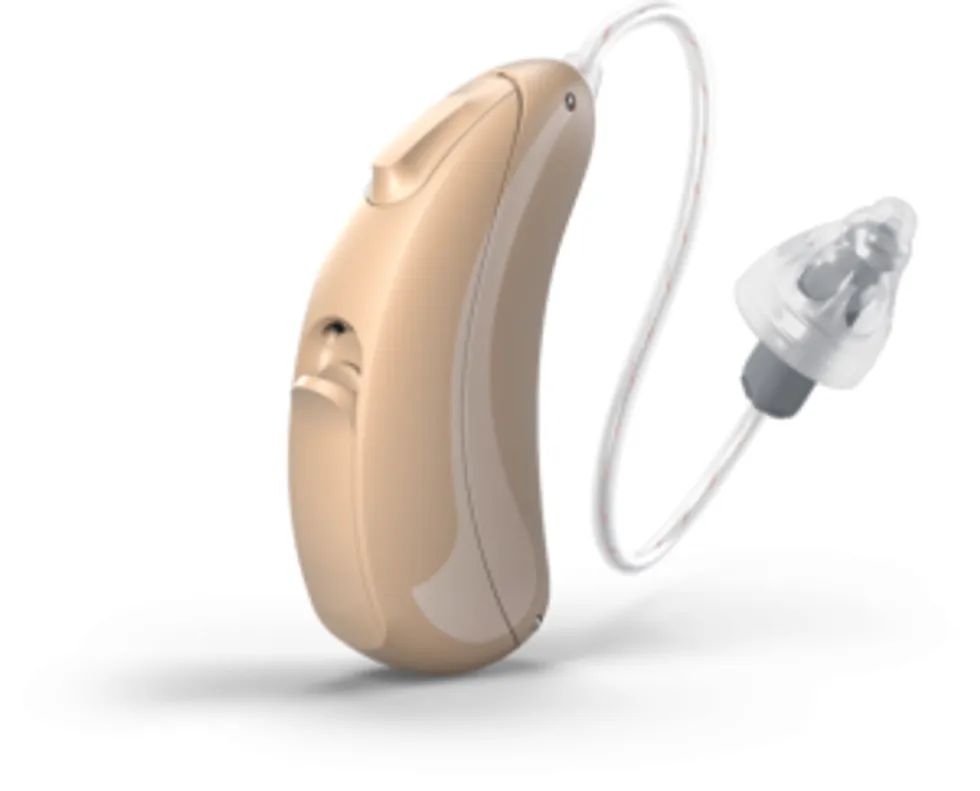
This post originally appeared on mysocalledmidlife.net.


